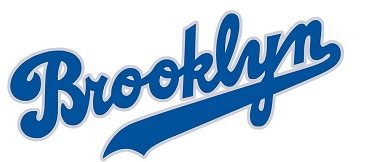Embarking on a career in Finance and Insurance (F&I) can be both rewarding and challenging. With the constant evolution of the automotive industry and the increasing complexity of financial transactions, obtaining quality education is crucial for success in this field. Choosing the right F&I training school is a vital step in ensuring that you acquire the necessary skills and knowledge to thrive in the competitive world of automotive finance. In this article, we will explore key considerations to help you make an informed decision when selecting the best F&I training school.
Accreditation and Reputation
One of the first and most crucial factors to consider when choosing an F&I training school is accreditation. Ensure that the school is accredited by relevant educational bodies or industry associations. Accreditation ensures that the curriculum meets specific standards and is recognized within the industry.
Additionally, consider the reputation of the training school. Look for reviews, testimonials, and feedback from former students. A reputable F&I training school should have a track record of producing successful professionals who excel in the field.
Comprehensive Curriculum
The automotive finance landscape is multifaceted, and a comprehensive curriculum is essential for providing a well-rounded education. Look for a training program that covers key topics such as finance and insurance regulations, compliance, sales techniques, customer relations, and software proficiency.
An F&I training school should also stay abreast of industry trends and incorporate real-world scenarios into its curriculum. This ensures that students are well-prepared to navigate the challenges and complexities of the F&I profession upon graduation.
Experienced Instructors
The expertise of the instructors is another critical factor in choosing the best F&I training school. Instructors with real-world experience in the automotive finance industry bring practical insights and valuable perspectives to the classroom. They can share personal anecdotes, industry best practices, and the latest trends, enhancing the overall learning experience.
Look for instructors who are not only knowledgeable but also passionate about teaching. Their enthusiasm can inspire students to excel in their studies and future careers.
Hands-On Training and Internship Opportunities
The F&I profession involves more than theoretical knowledge; practical skills are equally important. Seek out training schools that offer hands-on training and internship opportunities. Practical experience allows students to apply their theoretical knowledge in real-world scenarios, preparing them for the challenges they will face in their careers.
Internship programs with reputable dealerships or financial institutions can also provide valuable networking opportunities and may even lead to job offers upon graduation.
Industry Connections and Placement Assistance
Consider F&I training schools that have strong connections within the automotive industry. Schools with established relationships with dealerships, financial institutions, and industry professionals can provide valuable networking opportunities for students.
Placement assistance services are another crucial aspect to consider. A school that helps graduates find employment in the field through resume building, interview preparation, and job placement assistance demonstrates a commitment to the success of its students beyond the classroom.
Cost and Financial Aid Options
While education is an investment in your future, it’s essential to consider the cost of the F&I training program. Compare tuition fees, additional costs, and available financial aid options. Some schools may offer scholarships, payment plans, or partnerships with financial institutions to assist students in funding their education.
Conclusion
Choosing the best F&I training school is a critical decision that can significantly impact your future career in automotive finance. By considering factors such as accreditation, reputation, curriculum, experienced instructors, hands-on training, industry connections, and financial aid options, you can make an informed choice that aligns with your career goals. Remember, investing in quality education is an investment in your future success in the dynamic and rewarding field of Finance and Insurance.

